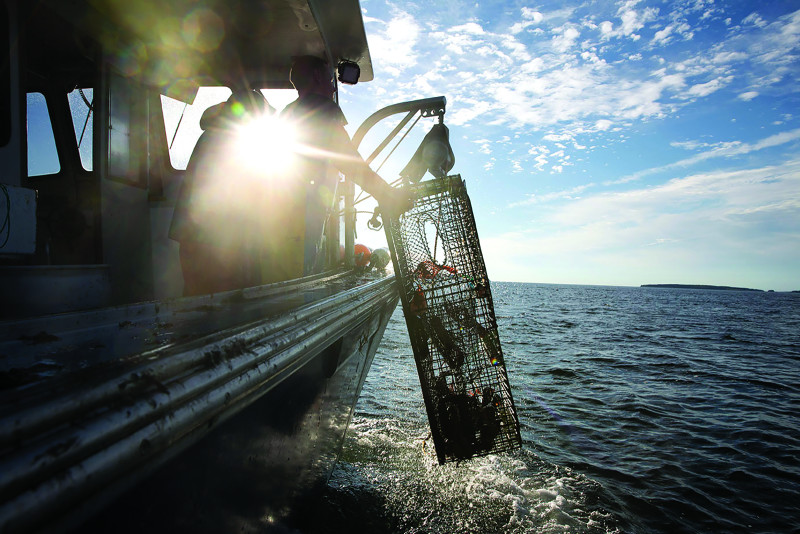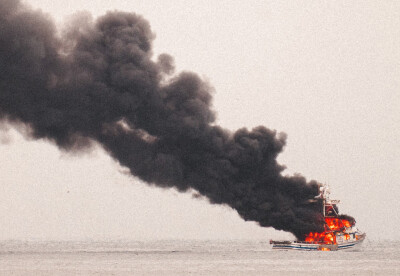A U.S. District Court of Appeals for the District of Columbia has ruled in favor of Maine lobstermen in ordering the National Marine Fisheries Service to vacate a 2021 biological opinion regarding North Atlantic right whales that led to more stringent rules being implemented for lobster fishing.
The unanimous 3-0 ruling, filed with a majority opinion written by U.S. Senior Circuit Judge Douglas Ginsburg, found the service went too far in its analysis of the lobster and Jonah crab industries’ potential harm to the critically endangered North Atlantic right whale.
Maine Lobstermen’s Association Executive Director Patrice McCarron said the ruling is welcome news for the lobster industry after years of court battles stemming from the issuance of the revised biological opinion.
“When the Maine Lobstermen’s Association made the decision to sue the federal government, we knew it wouldn’t be easy, but we refused to go down without a fight,” McCarron said. “Today’s decision by the U.S. Court of Appeals is an overwhelming victory for lobstering families and the communities that rely on this industry, and it reaffirms what the MLA has been saying all along – the federal government does not have a blank check to use ‘worst-case scenarios’ and disregard actual data in its regulation of the Maine lobster fishery.”
The court's ruling found NMFS overstepped its authority when it used worst-case scenarios and pessimistic assumptions in its crafting of its biological opinion, which required it to create new rules, which required lobster fishermen to switch to new gear.
Ginsburg cited a 1978 case where the Supreme Court ordered work to be halted on a USD $100 million dam project, after ruling the Endangered Species Act (ESA) could not be used to require endless investigation into impacts on endangered species without showing actual proof of harm. In 1979, the U.S. Congress “lightened the load to avoid paralysis” by changing some of the language in the ESA from “do not jeopardize” to “is not likely to jeopardize,” and added clauses that required any agency to use the best scientific and commercial data available at the time, not the best data possible.
“This history shows the Congress did not want economic activity stopped in its tracks whenever complete data was lacking,” the court wrote. “To say uncertainty is a reason to veto a federal action is to say that many valuable activities must cease, even if the risk of jeopardy is not ‘likely,’ but speculative.”
The court added that the NMFS biological opinion was “capricious” and “contrary to law.
“The service’s legal reasoning was not just wrong; it was egregiously wrong” in that it based some of its legal arguments on legislative history rather than statute, Ginsburg wrote.
“As any high school civics student should know, legislators vote on and the president signs bills, not their legislative history,” Ginsburg wrote. “Statutory text and structure do not authorize [NMFS] to ‘generally select the value that would lead to conclusions of higher, rather than lower, risk to endangered or threatened species whenever it faces a plausible range of values or competing analytical approaches,” the court wrote. “The statute is focused upon ‘likely’ outcomes, not worst-case scenarios. It requires the Service to use the best available scientific data, not the most pessimistic.”
Assuming a worst-case scenario in all its decision-making is fraught with problems, as “worst-case scenarios lie on all sides," Ginsburg wrote.
“It is not hard to indulge in one here: ropeless fishing technologies, weak links, inserts, and trawls may not work; permanent fishery closures may be the only solution,” the court said. “The result may be great physical and human capital destroyed, and thousands of jobs lost, with all the degradation that attends such dislocations.”
The MLA has long argued that the NMFS’s science didn’t support its plan and that the agency was overstepping its authority.
"MLA is grateful for the panel’s thorough and unanimous opinion that exposes the flaws in the biological opinion that lobstermen have been emphasizing from the beginning – flaws that threatened to sink our entire fishery and devastate our livelihoods and our communities,” McCarron said.
That point appeared to resonate in the judgment, which pointed out most of the deaths with known origin happened in Canada, and that the NMFS’s worst-case scenario would have the lobster and Jonah crab fisheries killing 46 whales per decade, “a staggering departure from the two documented deaths known to have originated in all U.S. fisheries over a period of nine years.”
Despite the low evidence of harm, McCarron said the industry will continue to evolve its practices to protect right whales.
“We all agree with the need to ensure a safe environment in which the endangered right whale can recover, and MLA is hopeful that this decision will force the National Marine Fisheries Service to go back to the drawing board to develop a plan that uses best available science and accurate data and, importantly, that will protect whales without eliminating the lobster fishery,” she said.
The biological opinion was also a part of a court ruling that ultimately resulted in the Marine Stewardship Council withdrawing its certification of the Gulf of Maine lobster fishery. The industry later withdrew from MSC certification voluntary, and MSC Senior Public Relations Manager Jackie Marks told SeafoodSource it would be up to the inudstry to reapply.
"This new information would probably be part of the assessment," she said.
This story originally appeared on SeafoodSource.com and is republished here with permission.







